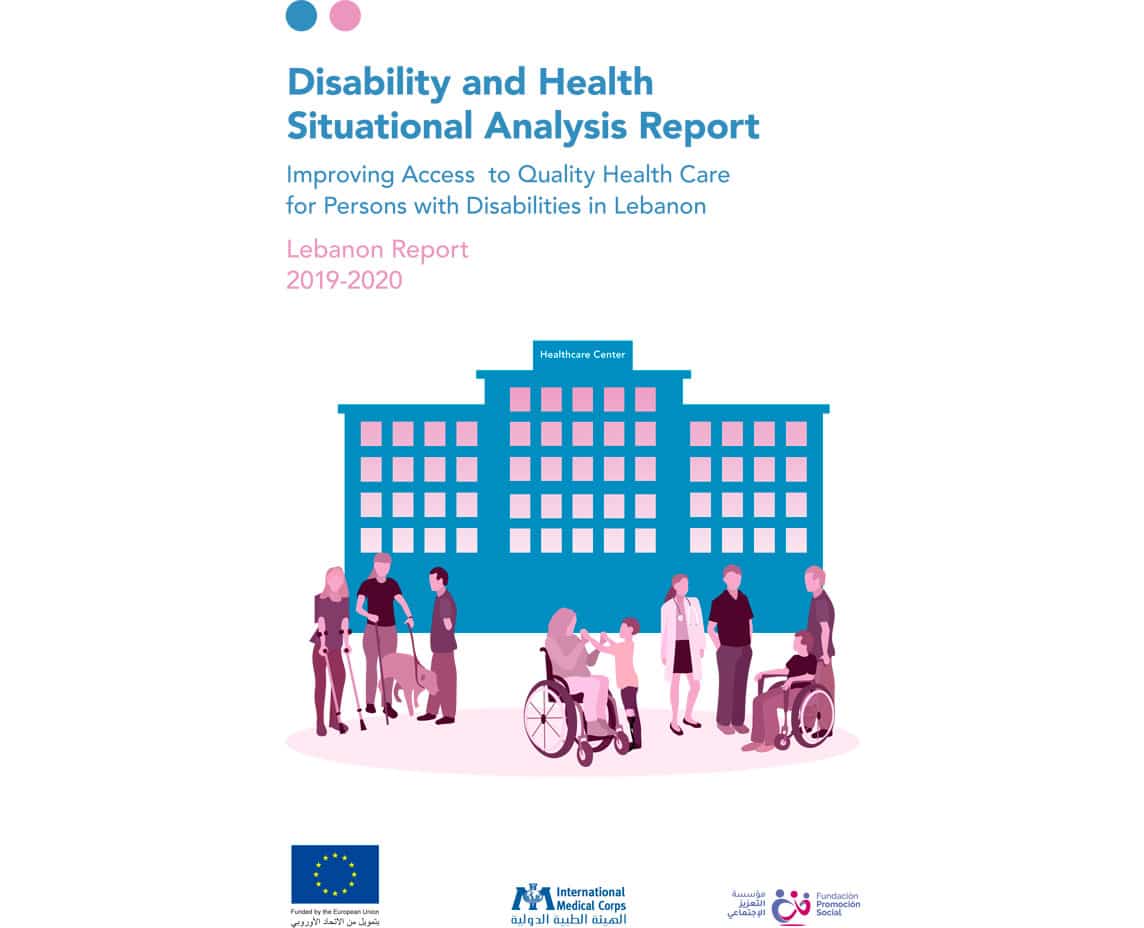On the occasion of the World Refugee Day, under the slogan this 2020 “Every action counts”, the Social Promotion Foundation makes public the study “Disability and Health Situational Analysis Report in Lebanon 2019-2020”in English and Arabic.
People with disabilities (PwD) usually have more health care needs than others, those that are common to all and those linked to their particular health conditions. They are more susceptible to worsening health and, as a result, need health care services more often.
In Lebanon, all PwD face increased vulnerability due to the impact caused by inaccessible health services. At the same time, since they face greater barriers to accessing services, PwD have a decreasing acceptance of general and specialised health services when needed.
The report by the Social Promotion Foundation aimed to examine access to and use of health services by PwD in Lebanon and the barriers they face.
The study included a quantitative survey of 1,055 Lebanese PwD and Syrian refugees along with 14 focus groups. Disability and geographic diversity were taken into account to ensure the inclusion of a wide range of cases. In addition, 8 semi-structured face-to-face interviews were conducted with key stakeholders and disability experts to better understand the overall system by which health services are provided to PwD in Lebanon.
This report was carried out by the Foundation in collaboration with the Lebanese Ministry of Social Affairs (MoSA) and the partner International Medical Corps (IMC), as part of the ”Reducing Economic Barriers to Accessing Health Services in Lebanon (REBAHS)” project under the component “Improving access to quality health care for persons with disabilities in Lebanon”.
This project is funded by the European Union Regional Trust Fund in Response to the Syrian Crisis (‘The Madad Fund’) under the European Commission’s Directorate General for Neighbourhood and Enlargement Negotiations (DG NEAR).
The Trust Fund was established in 2014 to respond in a coordinated manner to the “needs of Syrian refugees in neighbouring countries, as well as those of refugee-hosting communities and their administrations, in particular with regard to resilience and early recovery”.
Up to date the MADAD Fund has mobilized 2.2 billion, including voluntary contributions from 21 EU Member States (including Spain), Turkey and the United Kingdom, for projects in the fields of health, education, livelihoods, protection and water management.








